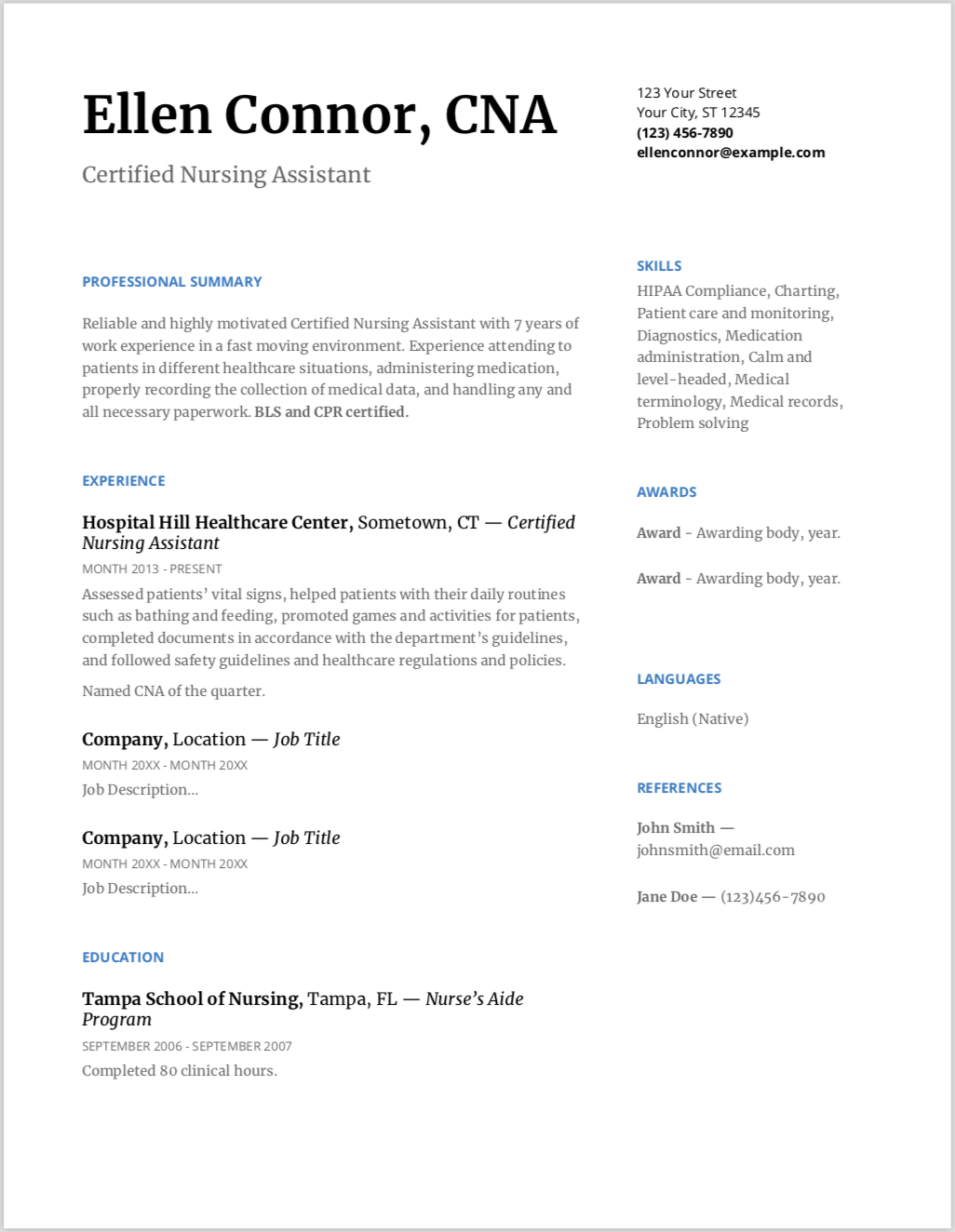Writing a resume as a Certified Nursing Assistant (CNA) is similar to writing one for any job. You’ll demonstrate your skills, education, and certifications applicable to the job for which you’re applying. When creating your resume remember that it is an opportunity to show employers why they should hire you.
Whether you’re applying to your first job as a CNA or your next, you’ll need a resume and a cover letter. While a resume is always required for experienced CNAs, those new to the field can stand out by including one in their application. Experience outside the field of nursing can matter, especially if it is in other medical offices or within the field of science.
Provided below is a sample resume for CNAs:

There are many important matters to include in your CNA resume, most notably — contact information, a professional summary, certification, professional experience, education, skills, and references. Make sure to include all relevant information, while keeping your resume no longer than two pages.
The first thing you want to include in any resume is your contact information; this is how the employer knows where to find you. It is traditional to include your name, phone number, email, and home address.
When including your contact information, make sure it is easy for employers to spot. Always place your contact information at the top of your resume and make the font size relatively larger than the rest of the text.
A professional summary should be brief and include your certifications and areas of expertise — as is relevant to the job. CNAs applying to jobs in the field of nursing as such should include their nursing assistant certification and summarize their experience monitoring patients’ health, operating in diverse medical situations, and completing patients’ paperwork, among other skills.
Near the top of your resume you should include your certification and licensure. This is one of the first things employers must cross off their list in order to legally hire you. Certification can include more than your CNA license; if you’ve completed training or courses in CPR, BLS (Basic Life Support), or any other specializations be sure to mention those as well.
The body of your resume will be composed of your professional experience. If you’re a new CNA, include any clinical or internship hours completed during your certification training. Always be sure to include when and where you gained professional experience.
It is always a best practice to include a brief statement below each job you have held or internship you have completed. This statement simply informs your potential employer what your main tasks were, as well as what skills you picked up in your position.
The skills and qualifications section of your resume tells your employer why they should hire you. Think of this section as your opportunity to show off your knowledge and expertise in a list format. Remember to include both hard and soft skills you’ve picked up in your work as a CNA. If you’re applying to your first job as a CNA, focus on your soft skills — emphasizing why you are worth training and what you can bring to the field.
Towards the end of your resume you’ll include any education and training you have completed. Whether you’ve received a college degree or completed a CNA training program, make sure to include when and where you completed it. Also include any awards or special achievements received during the program.
In the last section of your resume, you’ll want to add 2-3 professional references. Traditionally, these are of previous employers, professors, educators, or colleagues — though they can be anyone with knowledge of your work experience and ethics. Be sure to include their full name and contact information, such as a phone number or email address. It is also courteous to inform your references that you are including them on your resume.